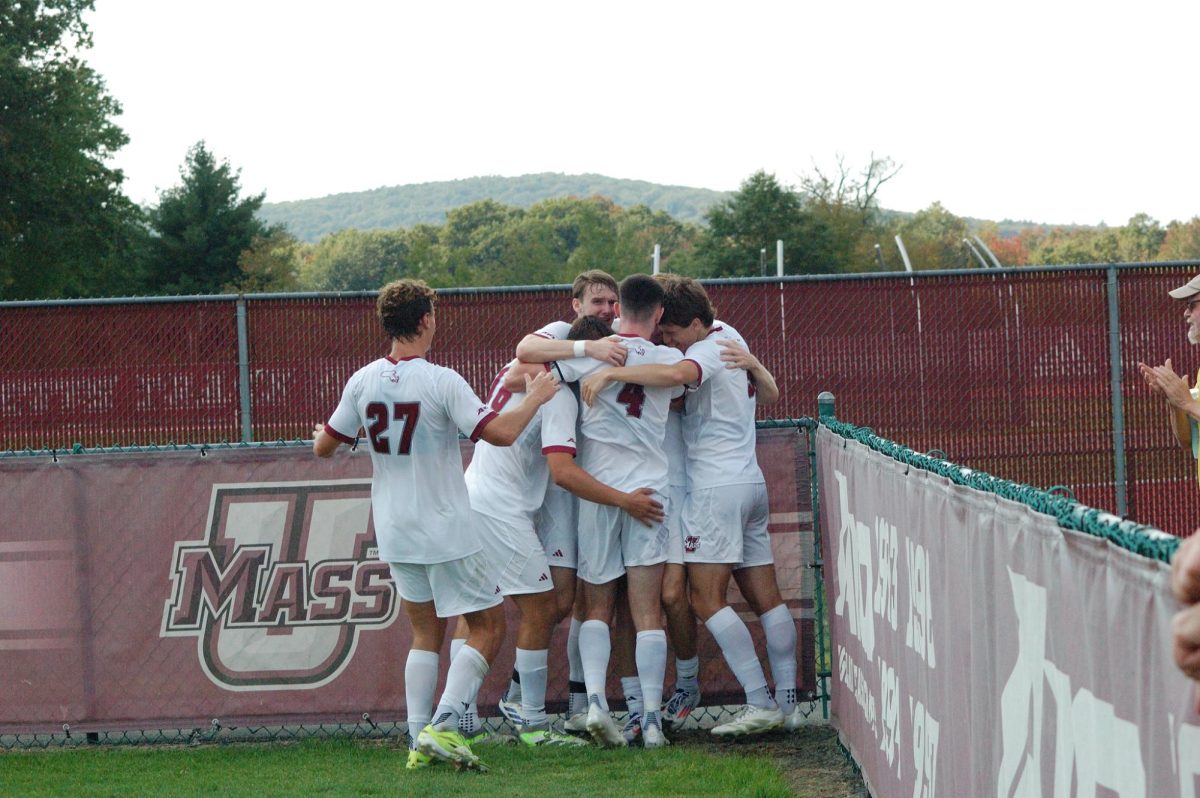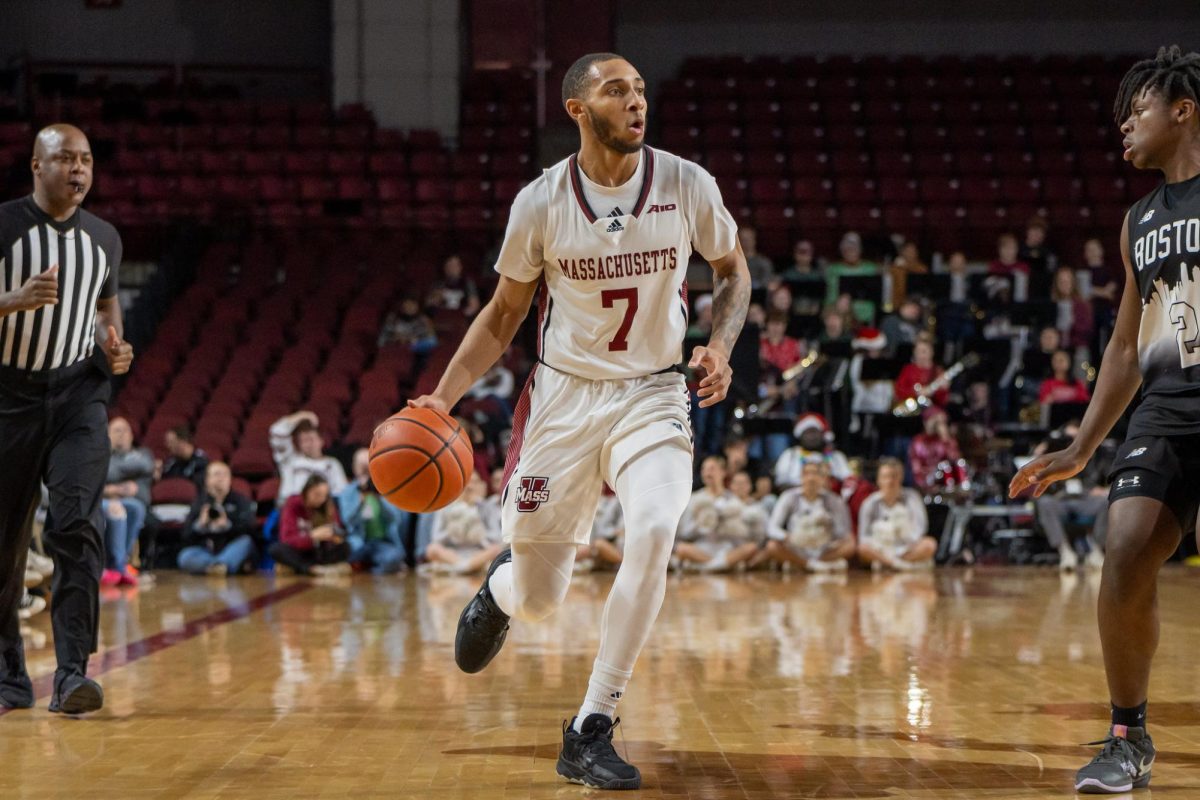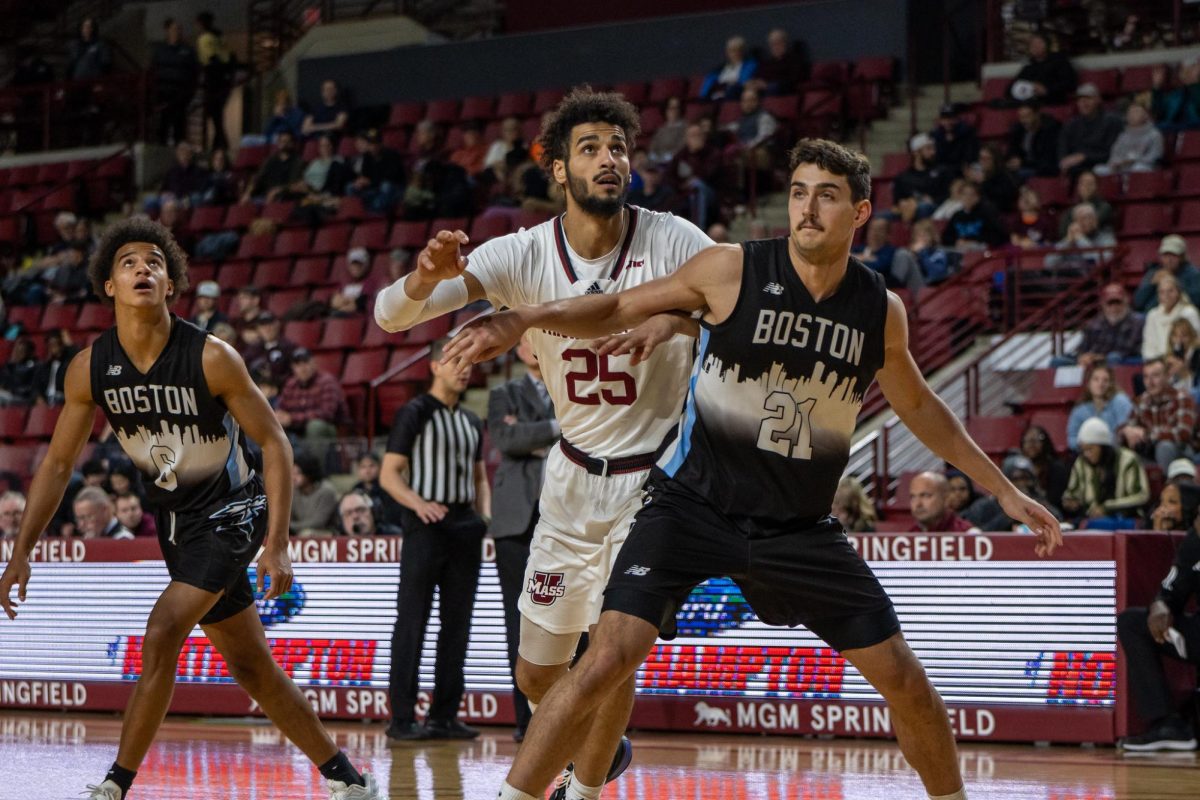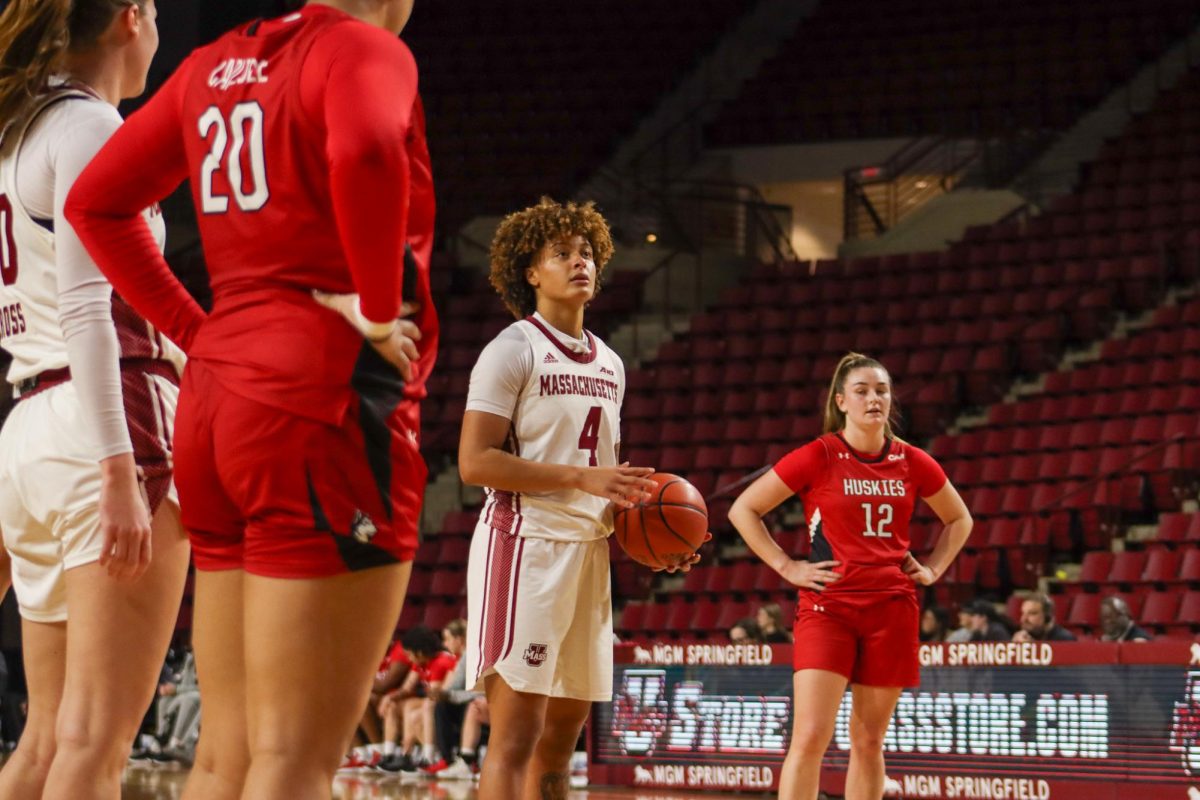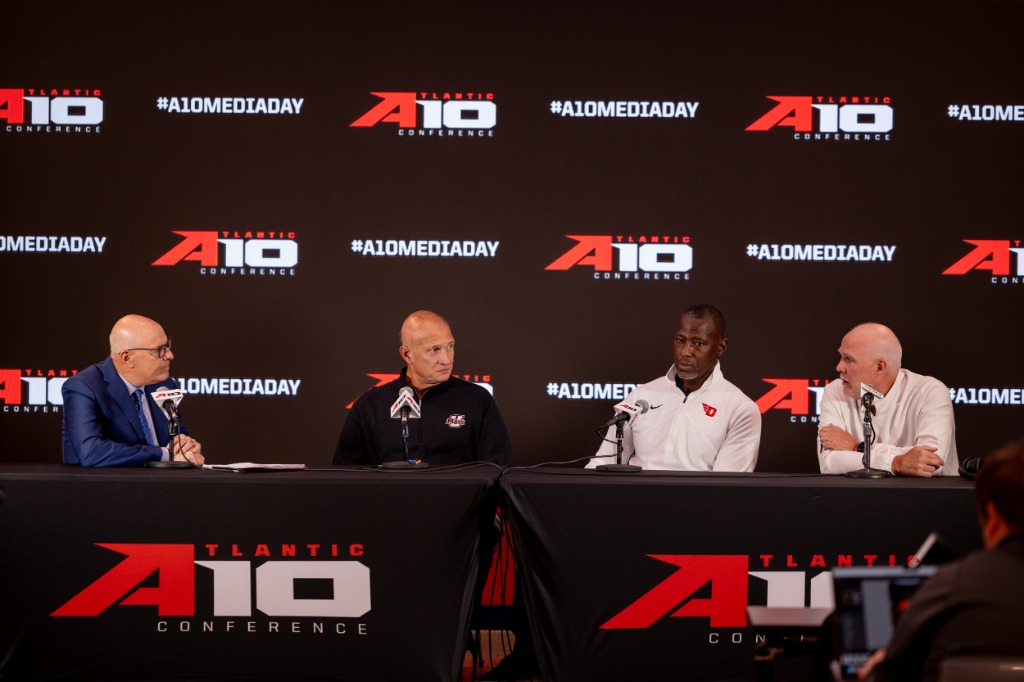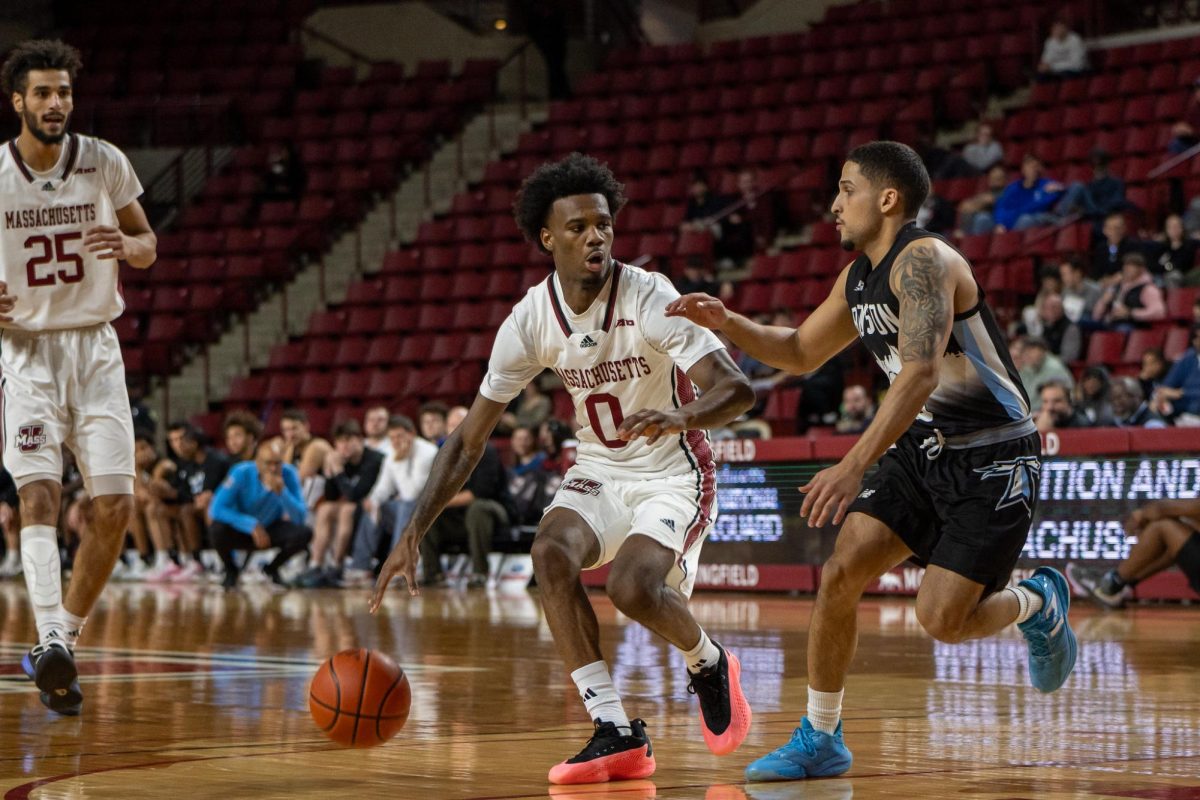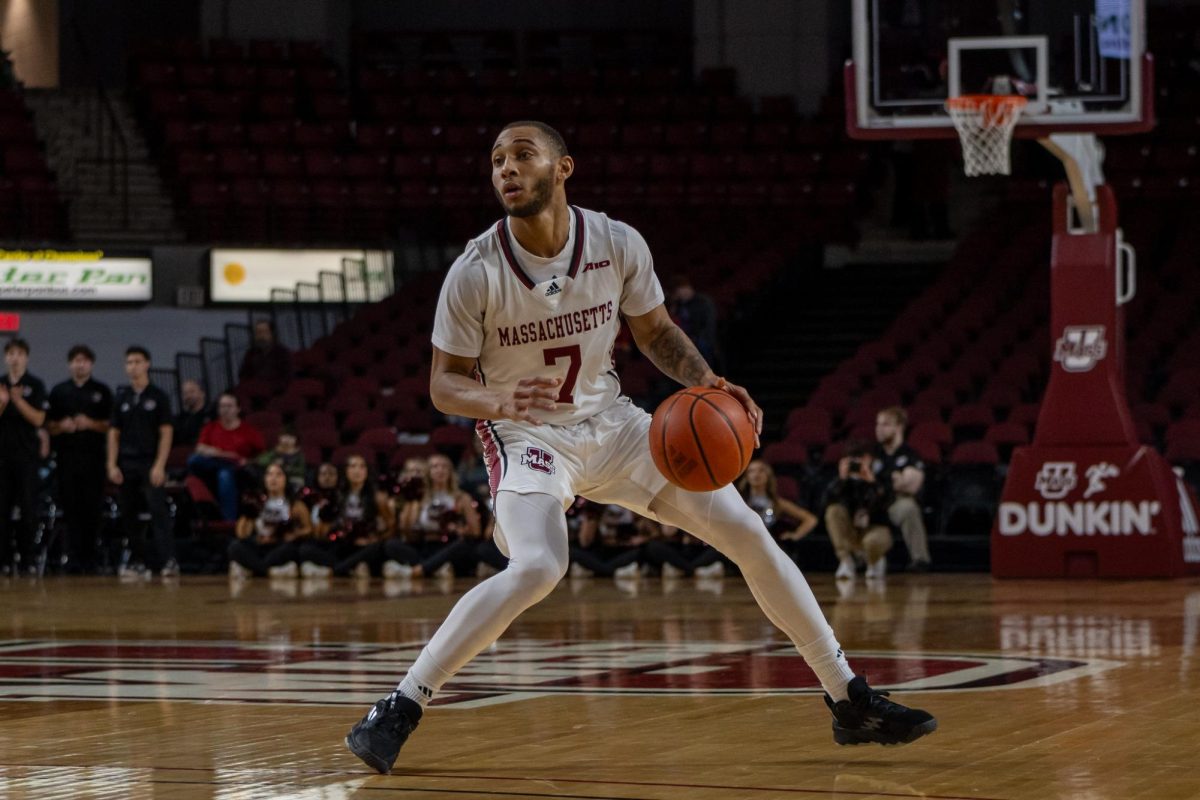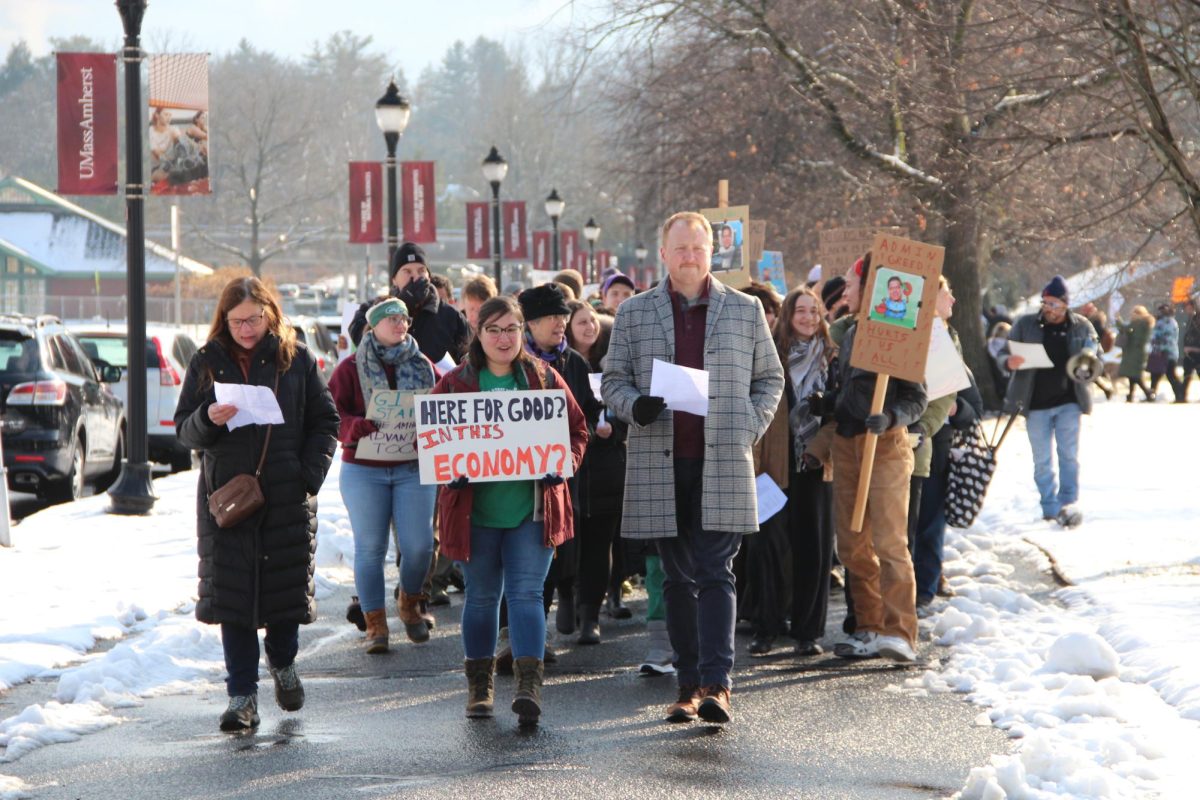On Friday, March 29, the Graduate Student Senate (GSS) held a candidate forum to elect president, vice president and treasurer in Campus Center Room 165, where graduate students gathered to hear candidates discuss their experiences and plans for the roles.
GSS consists of students from each graduate department who serve as the official representatives of the graduate student body at the University of Massachusetts. GSS is funded by a “senate tax” of $80 paid by graduate students. The tax helps fund projects from childcare programs to Graduate Student Organizations (GSO’s).
Peter Ngobidi, a business administration master’s student, led the debate, while members of the election committee kept time. Candidates were allowed two minutes to respond to each question asked by moderators and one minute each for audience questions.
John Arigbede, a chemical engineering doctoral student and the first presidential candidate to speak, stressed his previous experience in GSS as a member of the executive and election committees.
“As a truly effective leader, you have to stop and excel first as a follower,” Arigbede said.
Arigbede was joined by vice presidential candidate Dhruv Vinod Tiwari, an engineering management master’s student.
“We share the same vision and a dream,” Tiwari said, emphasizing that they’ve had time to learn from their past.
Both Arigbede and Tiwari seek to address the cost of living crisis for graduate students, and “ensure that you can sleep with your two eyes closed and know that the bills won’t kill you.” They also want to expand opportunities to international students and create a formalized GSS training program that will help maintain institutional knowledge and relationships with administrators.
To hold themselves accountable, they want to have an open-door policy that would include all students in the process. “The most crucial thing is holding yourself accountable and responsible,” Tiwari said. “We are going to tell you how it went and how it’s going.”
Alina Durrani, a communication doctoral student who has been a senator for three years, stressed the need to “work within the frameworks afforded to GSS.”
“The thing that should decide any decision in GSS should be determined by the constitution,” she said. “Right and wrong should be determined by the constitution.”
According to Durrani, GSS should exercise all the opportunities available to them, including attendance at advisory and council meetings with administration.
Running with Durrani is fellow communication doctoral student Hanmin Kim, who used their shared experience in the communication department as evidence for why they would work well together.
The pair want to expand the visibility of GSS to amend the “shocking” lack of knowledge about GSS. Kim, who is the vice president of the Korean Graduate Student Association, wants to “bring a new East Asian population to the senate,” to make it a more representative organization.
Durrani wants to include graduate organizations that receive funding from departments in the decision-making fold, and “get our senators to talk to all our departments that do not have senators representing them.”
Sravani Gona, a computer science master’s student running for president, sees the position as “one of communication and collaboration.”
“I do not see it as an authority to make a decision, I see it as an opportunity to collaborate,” Gona added.
Gona, a newcomer to GSS, highlighted her experience building the ISTE club “from scratch.” Noshitha Juttu, who is also a computer science master’s student, completes the ticket.
According to Juttu, the pair “met each other as strangers” and have “come a long way.” Juttu said their close personal relationship helps unite them even though they “are two different individuals with two different perspectives,” and gives them an advantage over those who always agree.
“She is my biggest critic,” Gona said of Juttu.
The pair is running on a platform to expand existing GSS programs while working to create more opportunities for graduate students. Part of this process, they say, is being responsive to the concerns of graduate students.
“We’re only able to present the voices only when all the voices know they have a chance to be represented,” Gona said. “They should know GSS is for them.”
Puja Kadam, an engineering management master’s student, pointed to their six years of industry experience as a way to overcome the obstacles they will face as president. “When you work with people in corporate you come up against people who do not cooperate,” Kadam said.
Kadam wants to focus on getting long gestating projects done. “We have a vision not just fueled by ideas but we have tangible solutions for them,” she said.
Melissa Fernandes, a food science master’s student, is Kadam’s roommate and vice-presidential candidate. They met as roommates, and as international students they got to know each other through “situations when we were all alone, alone from family, alone from home.”
Both were able to branch out and start to enjoy their time at UMass, and they want to make it easier for new graduate students to navigate student life. Neither have experience in GSS, but they think their strategy would greatly help the student body.
“Reaching out to everyone, whether it’s a newly joined student or a student working in their second or third semester will help students get acclimated,” Kadam said.
They want GSS to be a conduit for connections between graduate students who don’t always have the same interests, which can be as simple as having “a coffee or teatime together.”
The candidates were friendly throughout the forum, and shared several laughs, especially during a quiz portion that asked vice presidential candidates to name the committees they would serve on.
“No matter which of us wins I am sure we will ultimately do the same thing,” Gona said.
Ngobidi thanked those running for their “time and well-articulated answers,” and the candidates for treasurer took to the front of the room.
Ujjawal Gupta, an engineering management master’s student running for treasurer, described his experience leading a Google Crowdsource community launch in India to demonstrate his financial leadership. According to Gupta, he “built a very big community in a small town,” and this experience has shown him both what can be done with resources and how those resources can diminish without proper use.
Gupta intends to refocus the budget for GSS. “We need to have a proper plan in action to analyze the impact the money is going to make … whatever money as the treasurer they’re assigning to GSO’s, they have to make sure the value is delivered for that,” Gupta said. “We can have clear parameters.” For Gupta, these parameters should be the number of participants and the scale of the event.
Siri Parameshwar, an engineering management master’s student, said that as an international student, personal budgeting is top of mind. In tandem with her experience as an educational coordinator for the National Service Scheme in India, Parameshwar has learned how to prioritize funding projects for GSS.
“I don’t think working on every project would be possible, so prioritizing the right project and working on the right project is very important,” Parameshwar said. “I think you should be very transparent, very clear about the funds and the budget that is present with you and not guarantee or tell your president that (a project) is possible without clear-cut information about it.”
Danish Parvaiz, an engineering management master’s student, wants to properly fund and communicate with GSO’s to better address student needs. Parvaiz also believes that “not enough graduate students are getting jobs,” and wants to allocate more funding to career events.
Parviz pulled from his experience as a fundraising volunteer and a CFO for his startup project to emphasize his communication skills.
“We have to communicate properly with the senators so they can work with their departments … we have to get them to ask questions to all departments and inform them about what we are doing in the graduate student senate,” he said. “Getting feedback will really help us work with different individuals.”
Ian Tincknell, a business administration master’s student who will be a computer science master’s student next year, said that his seven years as an administrative social worker with MassHeath put him “in a critical position that can mess things up if you’re not on top of things.” He’s also served as the treasurer of the Graduate Business Association and has experience with “the process of funding and the hoops you have to jump through” to get funds.
Parameshwar and Parvaiz both support a GSS tax raise to allocate more funding for projects. Gupta brought it up as an option to increase the reserves of GSS, while Tincknell primarily focused on spending the money GSS currently has efficiently.
Ahmed Karnain, a mechanical engineering doctoral student running for treasurer, did not appear at the debate.
More information about all candidates can be found on the GSS website. Voting will be held from April 3-5.
Daniel Frank can be reached at [email protected]



